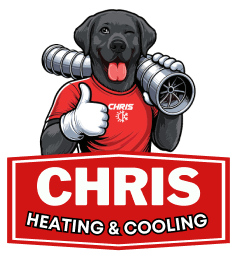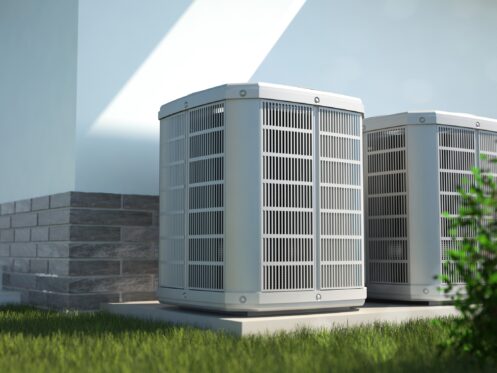Most consumers are looking for ways to lower their energy bills. Fortunately, Chicago homeowners can use several different methods, including paying attention to SEER ratings, to do just that. In fact, replacing your current HVAC system with one that offers a higher SEER rating can save you up to 40 percent!
What Is a SEER Rating?
Although you might have heard that the right SEER rating can save you money, you may not know what this means. To put it simply, SEER is an acronym that stands for Seasonal Energy Efficiency Ratio. It is determined by taking the system’s cooling output and dividing it by the total amount of energy used.
To be more specific, an entire West Chicago cooling season must be considered to get this rating. Additionally, you’ll want to use an average cooling season, which means temperatures that are higher or lower than normal should be discarded. Once all of these factors are taken into account, an air conditioner earns a SEER rating. Units that use smaller amounts of energy to provide proper cooling receive a higher rating.
One note of caution: Your unit’s SEER rating indicates its maximum level of efficiency. There may be times when it doesn’t reach this rating, however. Varying conditions impact a SEER rating, and they can cause it to become less efficient.
Does the SEER Rating Matter?
The SEER rating on your AC unit matters a lot to your overall HVAC efficiency! All you have to do is compare current SEER ratings to the ratings of 10 to 15 years ago to see how much more efficient a current air conditioner can be. ACs commonly used to achieve SEER ratings that topped out at 10.
Now, you can’t even purchase a new AC in West Chicago with a SEER rating below 14. If you want an ENERGY STAR system, the smallest one possible is a 14.5. As a result, simply replacing an AC that is at least 10 years old has the potential to save you between 20% and 40% on energy!
Is Buying the Highest Possible SEER Rating Best?
On the surface, simply purchasing the best possible SEER rating might seem like the right thing to do. However, we must point out that an air conditioner with a SEER rating of 14 can provide excellent efficiency if your West Chicago home has been made with energy efficiency in mind. The condition of your home insulation and ductwork can make a major difference. For instance, having top-notch insulation and ductwork may make a 14 more efficient than an 18 that is installed in a home with old or shoddy ductwork and insulation.
What Are the Benefits of a High SEER Rating?
When comparing two identical West Chicago homes, a higher SEER rating will bring major energy cost reductions. When you choose a great new air conditioner, there are several different benefits you’ll receive.
Higher Level of Comfort
First, you and your family will experience a greater level of comfort from a higher SEER rating. This is important, especially in an area where the summer usually brings warm and humid air. High indoor humidity is a prime indicator that your AC unit is outdated. Instead, replace it with a modern unit with a higher SEER rating, and you’ll experience a reprieve from high humidity and scorching heat.
Energy Cost Is Less
You have two choices when it’s time to update your HVAC system. You can choose a cheaper AC that will cost more to operate in the long run, or you can select a better AC that will cost more up-front but will ultimately save you money. We understand that everyone’s budget is stretched thin, but saving money on your energy bill can help you every single month. If there is any way for you to afford an AC with a higher SEER rating, this is the time to make that splurge.
Helps the Environment
Do you want to become a better steward of the earth? Buying an AC unit with a higher SEER rating is a great place to start! After all, it will use less energy than a unit with a lower SEER rating, which means it will have a smaller carbon footprint. Additionally, modern AC units typically use safer refrigerants than their older cousins. Making this one simple change will help you ensure green space for generations to come!
What’s Better, a Single-Stage, Variable-Speed, or Two-Stage Compressor?
Another decision you’ll have to make is whether to invest in a variable-speed, single-stage, or two-stage compressor for your West Chicago home. Again, cost will be a factor, but you’ll also need to carefully consider what each unit has to offer.
Single-Stage
A single-stage system is the most basic unit you can buy. These units are rated between 14 and 15. They cannot operate below 100% and, as a result, will constantly turn off and on. Although a single-stage system is the cheapest to purchase, it will cost more on average to operate day to day.
Two-Stage
A two-stage system is generally going to be more affordable than a variable-speed unit but more expensive than a single-stage system. Also referred to as a dual-stage compressor, these models offer two settings: high and low. They commonly run at 65% power on their low setting and at 100% on their high setting.
On days when it’s not quite as hot, your unit can operate on a lower setting. The intent is to use less energy on cooler days, which can also lead to a smaller energy bill. That sounds great, right? Before you answer, let’s find out what a variable-speed unit can do.
Variable-Speed
A variable-speed system operates with more than two settings. These units are the most advanced and efficient option available. They will take into account the indoor and outdoor humidity and temperature levels along with the amount of time they’ll need to run to achieve your desired indoor temperature.
Variable-speed units typically use anywhere from 25% to 100% of their cooling capacity. Because they’re able to use varied speeds, they also use less power. Although they may cost more initially, they provide much better value in the long run. Therefore, if having the most energy-efficient HVAC is one of your top goals, you’ll want to invest in a variable-speed system.
Which SEER Rating is Best?
Due to the many variables, there is no single answer regarding what SEER rating you should choose. However, here are some general guidelines.
- 14–16 SEER: lower efficiency
- 17–18 SEER: medium efficiency
- 19+ SEER: highest efficiency
We can help you understand your options and explore alternatives to find the best solution to meet your needs and budget.
Purchase Your New HVAC System Today
When it’s time to buy a new HVAC system in West Chicago, IL, turn to our experts! We specialize in HVAC services, along with providing top-notch, professional care for furnaces, air conditioners, ductless systems, radiant floors, heat pumps, indoor air quality, and more.
Our proficient team at Chris Heating & Cooling will install your new system in your West Chicago home quickly and without any hassles, so contact us today to get started!






